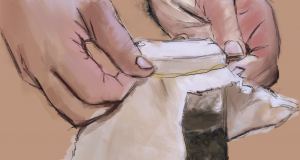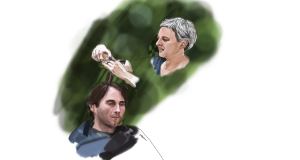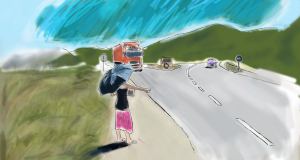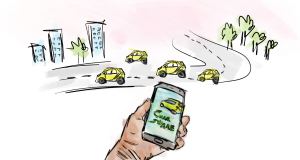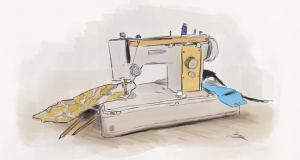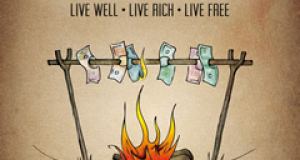
In 2012 Mark Boyle, also known as the Moneyless Man, published a book about living without money: The Moneyless Manifesto. It's about his life without money and it's also available for free.
The Moneyless Manifesto is especially convincing without becoming theoretical, like many other books about economy. It's a report about two and a half years without money. And unlike many other alternative economies you can start today and immediately get results.
The second part of the book is very concrete about the question how to actually live without money. The answer is that you can only be moneyless by leaving our all-destructing society behind yourself and to strive for unity with nature. That will be a step too much for most people, but you don't have to go moneyless from one day to the next, there are many intermediate steps that will increase your resilience without decreasing your happiness in life.
It's no wonder the book received a raving review by Zerzan, who is known to be highly critical of our (post-)agricultural civilization and advocates to go back to a life as led by hunter-gatherers.
Mark Boyle's book is at once practical, analytical and personal. A fine contribution that also opens on to the question of the very nature of the world we live in - and need to move beyond.
- John Zerzan, author of Future Primitive and Against Civilisation
Living Moneyless: Mark Boyle
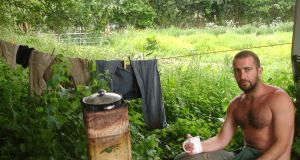
Living without money, how does that work out in practice? The Irishman Mark Boyle has been doing it since November 2008 and he's having a great time. He's living in England in an old caravan given to him. He start symbolically on Buy Nothing Day, a yearly day to not buy anything together with others.
For Mark Boyle it's especially a reaction to the consumer society in which we live and the knowledge that we're responsible for the things we do, to make the Earth a nicer place to live.
Money disconnects us
Thus he writes: "If we would grow our own food, we would no longer throw away a third as we do today. If we'd make our own tables and chairs we'd no longer dispose of them the moment we would want to change our home's interior. If we would clean our own drinking water we wouldn't waste it that easily."
As long as we keep on using money, he writes:
These symptoms will surely remain. That's why I decided to give up money, originally as an experiment, and I immediately felt myself more connected to the stuff I use and consume.

Freeconomy Living
But how can we acquire our stuff and how can we satisfy our needs if we'd all live without money? Mark is asking himself that question and started the network Just For The Love Of It. This Freeconomy network enables folks to show what they want and can give. So that people who need it can use it. Mark Boyle also writes articles for The Guardian. He gives a lot of tips and describes why he chose this way of living and how it's changing him.
He also published a book about it: The Moneyless Man: A Year of Freeconomic Living.


